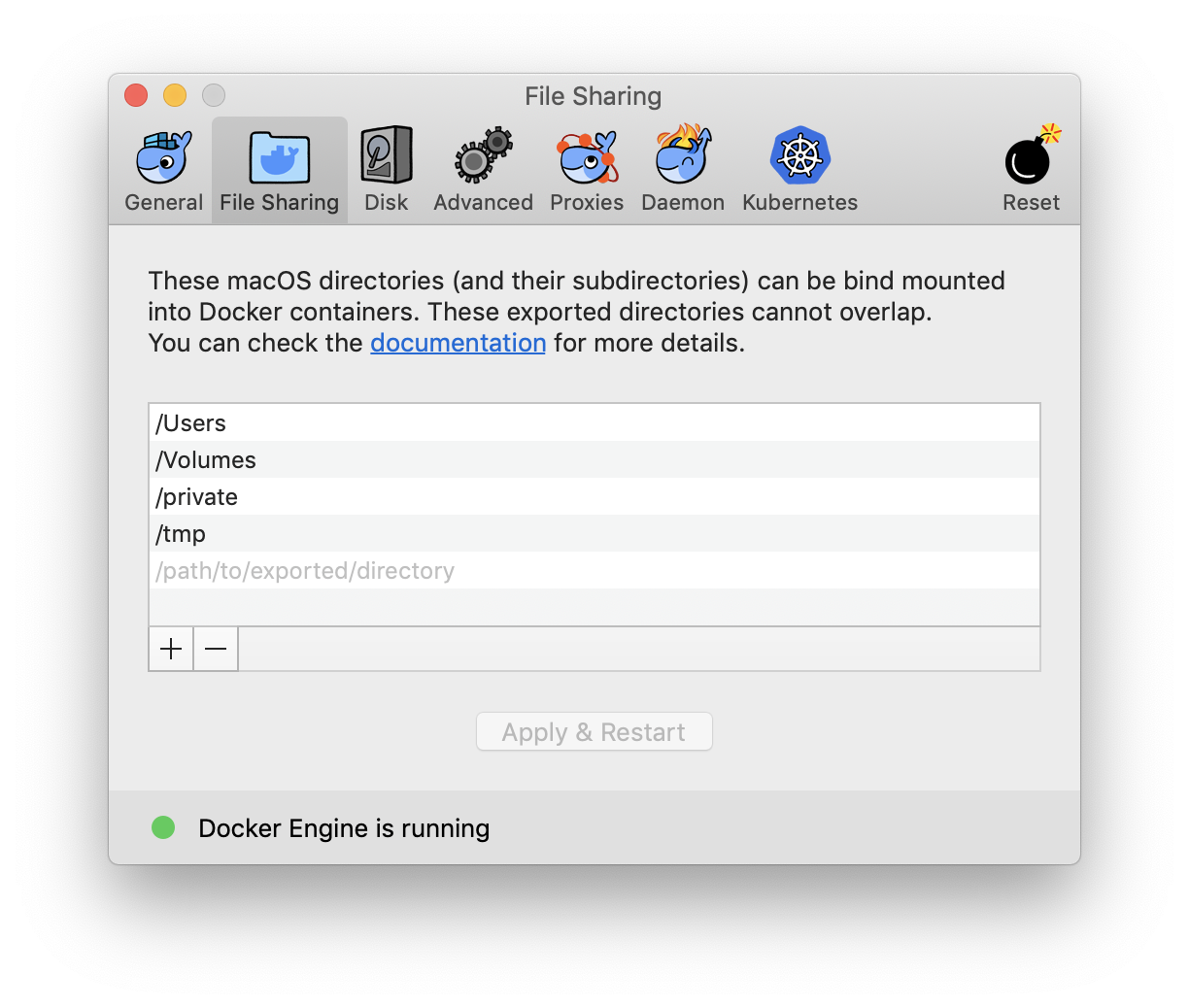brumann / workshop-skeleton
Project skeleton for workshops.
Installs: 7
Dependents: 0
Suggesters: 0
Security: 0
Stars: 0
Watchers: 2
Forks: 1
Open Issues: 0
Type:project
pkg:composer/brumann/workshop-skeleton
Requires
- php: ^7.1.3
- ext-ctype: *
- ext-iconv: *
- symfony/console: 4.3.*
- symfony/dotenv: 4.3.*
- symfony/flex: ^1.1
- symfony/framework-bundle: 4.3.*
- symfony/yaml: 4.3.*
Conflicts
This package is auto-updated.
Last update: 2025-11-29 02:37:36 UTC
README
This is a basic Symfony application with a basic docker setup for development.
This dockerized skeleton will provide all the services we need throughout the workshop, plus some more to play around with. This is not intended as a template for a production ready environment and most likely is even missing things you might want in your regular development setup like SSL certificates.
Installation
-
Create project from skeleton
git clone https://github.com/dbrumann/workshop-skeleton.git
-
Build docker image for app
# cd workshop-skeleton docker-compose build -
Start up docker containers
docker-compose up -d
The
-d-flag is optional and allows you to run other commands afterwards -
Install project dependencies for the Symfony application
docker-compose exec app composer install
Checking if everything is working
Once you followed the installation instructions, you should be able to open the following URLs in your preferred browser:
- http://localhost:8000 (Symfony application)
- http://localhost:8001 (RabbitMQ Management UI)
- http://localhost:8002 (Redis Commander Web Interface)
Additionally you should be able to connect to the MySQL database on port 3306.
If you can access each section, you are well prepared for the workshop and ready to get started 👍
Troubleshooting
I can not connect to one or more of the services (RabbitMQ, Redis, MySQL)
This could be, because the port is already being used, e.g. by a local
instance. You can modify the docker-compose.yml to change the port being
exposed to the outside by checking the service's port: settings and changing
the value before the colon. Another option could be to temporarily disable
the local service if you have permissions.
The Symfony application only shows a blank page
This could be because of file permissions or problems with mounting the volume. Please make sure the directory has permissions for File Sharing in your Docker preferences.
I am not permitted to install Docker on my machine
If you can not use the dockerized setup, don't worry. We will not need most of the services provided, only the Symfony application and a database. Feel free to run things locally using the following instructions:
- Create project
composer create-project brumann/workshop-skeleton workshop - Run a PHP internal webserver:
php -S 127.0.0.1:8000 -t public/
Additionally make sure that you have a database server like MySQL or Postgres
running or whether you have sqlite3 installed. To make sure the database is
usable by your PHP applications, you can check php -m | grep pdo. This should
print out the name of all available drivers you can use.
I have XAMPP, WAMPP or something similar setup, can I use that?
Yes, but I have not used those in a while, so I might not have the time to properly assist you, should you run into problems. Please make sure in advance that you have PHP 7.1+ and a database you can use.
How can I run Symfony console commands?
You can log into the app-service to run console commands, just like you are used to:
docker-compose exec app bash
This will open a terminal inside the container in the project folder, so
afterwards you can run commands like bin/console cache:clear. If you only
want to run a single command you can also replace bash with that command:
docker-compose exec app bin/console cache:clear
Some development tools like PhpStorm also allow you to connect to containers and perform commands.
Issues, questions and suggestions
Should you have any other issue not covered in the troubleshooting guide or need further assistance with setting up the skeleton don't hesitate to contact me, preferably via email:
denis.brumann@sensiolabs.de


